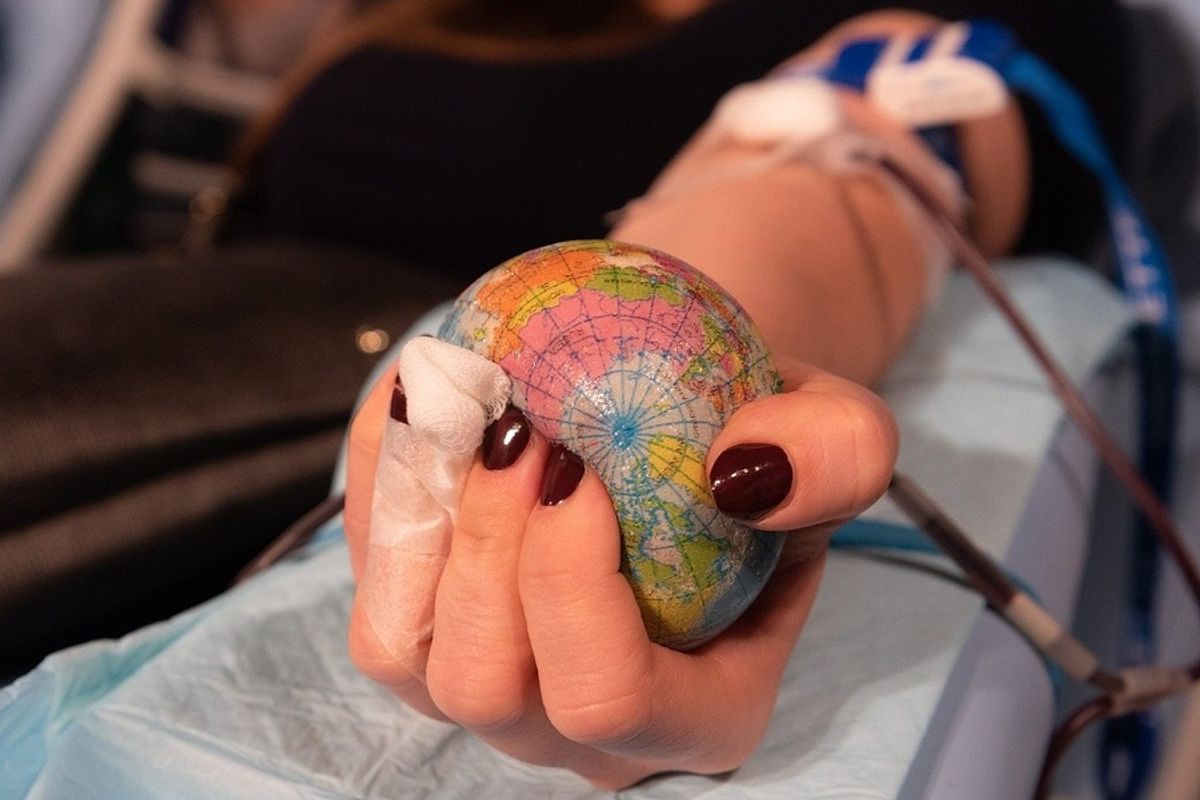Though we've all felt the impact of the last two weeks of social distancing, healthcare workers, restaurant and small business owners and staff, and the elderly and medically fragile are especially feeling the economic, social, and physical effects of the coronavirus crisis.
While staying indoors is a major help in the battle against COVID-19, if the shelter-in-place order has you itching for something more to do, there's no better way to spend your time than by giving back to those on the front lines.
Don't worry, you don't have to put yourself in harm's way to help out—a lot can be done from your own home, including buying restaurant gift cards and donating coffee to healthcare workers. Even out in the world, there are ways to safely help out neighbors and nonprofits.
We've broken down the ways you can contribute by risk factor, on a scale of zero to four, from activities that won't require you to change out of your pajamas to those that will require you to get dressed and probably even put on a mask. No matter what your comfort level is, here's how to make a difference.
Zero Risk: Donations, Mask-Making & More
Donate or buy a gift card from your favorite local businesses.
SaveOurFaves and Gift Cards for Small Businesses sell e-gift cards to a variety of Bay Area restaurants and small businesses starting at as little as $10 a piece.
GoFundMe has organized thousands of COVID-19 relief fundraisers for businesses impacted by the virus. Browse or search the list and donate with just a click.
Sew fabric masks for Kaiser staff.
Although hand-sewn masks don't provide the protection most hospital staff need, they can be used as an extra layer of protection over N95 masks or in case of a severe shortage. Some hospitals, including Kaiser Permanente, are accepting donations of homemade masks that meet specific requirements
Buy a cup or carafe of coffee and comforting granola bars and mini-pastries from Andytown Coffee Roasters. They deliver the goodies to a different hospital or care facility daily. Donations start at just $3.50.
Write a letter to those confined to senior care facilities.
Love for the Elderly is asking people across the country to share a little handwritten love with isolated residents in senior care facilities. It's a small gesture that can help the elderly to feel more connected during the coronavirus outbreak, which has closed down hospices, assisted living facilities, and senior centers to visitors.
Donate to an organization helping those most vulnerable during the crisis
Homeless and low-income community members are among the most vulnerable during the coronavirus crisis. Chip in to support organizations like St. Anthony's and Glide who are working to keep them safe; every dollar you donate to Glide's COVID-19 Emergency Response Fund, the Horowitz Foundation has pledged to match it tenfold, up to $500,000.
Risk Level 1: Be a good neighbor.
Provide assistance to elderly or immunocompromised community members.
Organizations like Oakland at Risk Match and SF Community Support pair healthy adults with those who are most vulnerable during the COVID-19 crisis. Sign up to be matched with a household who needs support and assistance over the coming weeks.
Chip in to help out your neighbors.
During shelter in place, many people are posting requests for assistance on Nextdoor. Walk a neighbor's dog, brighten someone's day with baked goods, or share a few rolls from your toilet paper stash.
Donate hygiene items to vulnerable community members.
Donate products like hand sanitizer, soap, toothbrushes and toothpaste, toilet paper and feminine hygiene products for unhoused and other vulnerable community members. Project Homeless Connect is accepting these items as well as donations of new, unusued socks, t-shirts and sweatpants and a handful of other items. Contact them to schedule a drop-off.
Risk Level 2: Volunteer at a local food bank or pantry.
All over the Bay Area, food banks are seeing an increase in need. Volunteer to stock shelves, organize packages of groceries, or deliver food at the SF-Marin Food Bank, Berkeley Food Pantry, the Alameda Food Bank, and other local food pantries.
Risk Level 3: Donate blood.
Nearly 3,000 blood drives have been cancelled across the country due to COVID-19, leading to severe shortages of the life-giving elixir. While the Bay Area shelters in place, the American Red Cross continues to operate its blood centers throughout the region. Sign up to donate at redcrossblood.org.
Risk Level 4: Volunteer with the Medical Reserves Corps (MRC)
Provide civilian support for overwhelmed first responders and hospitals by signing up for the Medical Reserves Corps. You don't have to be a former doctor to join an MRC unit in San Francisco, Oakland, Berkeley, Marin, and Palo Alto. They will provide training.





















